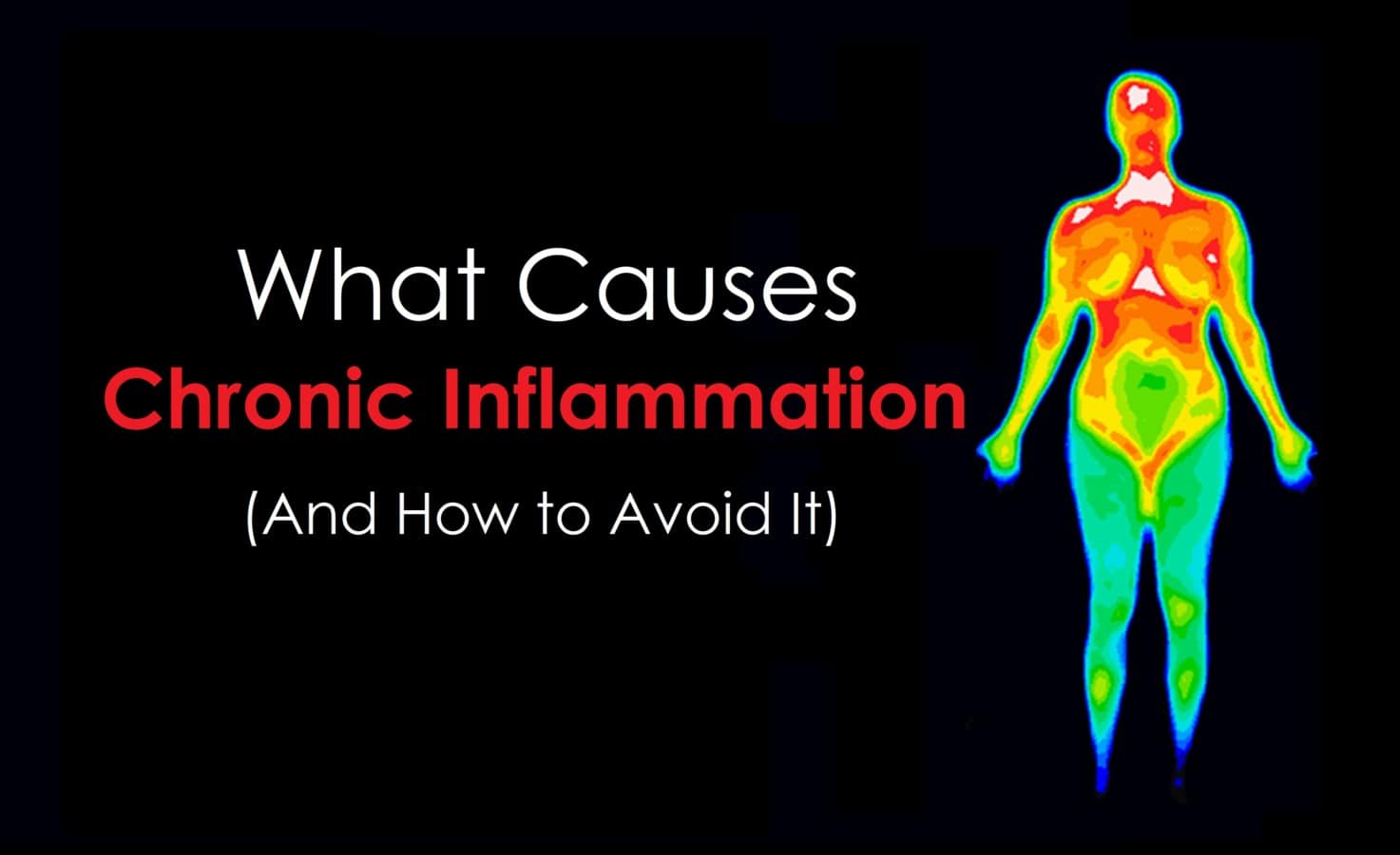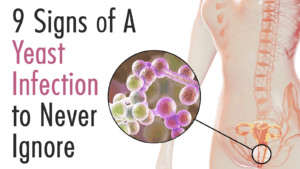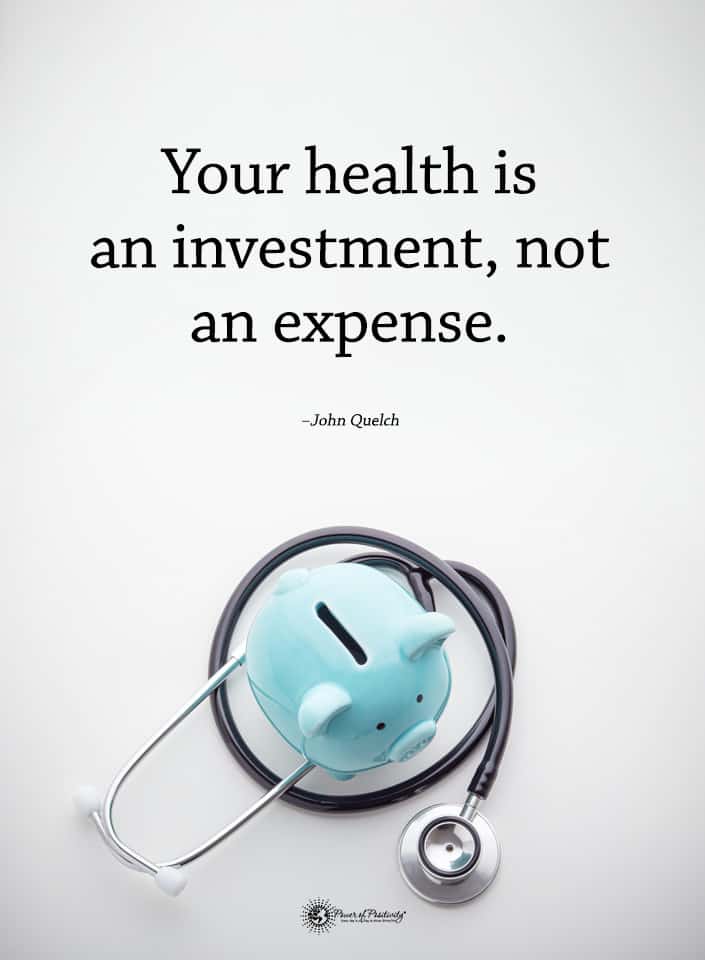Inflammation is a red flag to a variety of diseases, illnesses, and ailments that plague people from all walks of life. Inflammation is the response of a healthy body to cellular damage or a threat to the body. This means that when our bodies are struggling with inflammation, it’s a warning sign of something else. Inflammation isn’t the cause of illnesses or disease; rather, it is our body’s way of telling us that something is wrong or trying to fight back against what is harming it.
Chronic inflammation “occurs when your immune system gets set permanently to “on.” As a result, it constantly releases a flood of damaging chemicals that could sicken your cells. It’s like a forest fire that never goes out,” says naturopathic physician and nutritionist Kellyann Petrucci, ND.
The best way to figure out how to avoid chronic inflammation is to figure out what causes it, and how to avoid the causes of inflammation as best as possible.
Three Major Causes Of Chronic Inflammation And How To Avoid Them
“Lower your body’s burden of toxic chemicals, and you’ll turn down the flame another notch.” – Dr. Kellyann Petrucci
Candida
Candida Albicans are parasites that live inside of our intestinal tract. While the thought of parasites living inside of us seems a little terrifying, these little parasites often hang out with bacteria, creating a balance inside of our bodies. However, imbalance within one’s digestive tract can cause an overgrowth of Candida. When the Candida get out of control, they tend to tear through the intestinal walls and get places in our bodies that they shouldn’t – which, of course, causes our bodies to perceive them as a threat, which causes inflammation correctly.
Candida tends to become overgrown in our bodies when we aren’t getting enough beneficial, healthy bacteria. The best way to avoid an overgrowth of Candida, and thus inflammation, is to ensure you’re keeping your body in balance. Avoiding alcohol can help stop killing off the beneficial bacteria, and avoiding sugars can stop feeding the Candida.
Dr. Carolyn Dean MD ND states, “I have found that reducing sugar intake is one of the most important ways to control hypoglycemia, diabetes, and intestinal yeast.” Other foods that mess with the Candida and bacteria balance in your gut are GMOs, foods covered in pesticides, and refined foods that form acid.
Dr. Amy Myers adds, “I also recommend eliminating all fermented foods. That’s because, while it’s common knowledge that these help to feed the good bacteria, most people don’t realize that bad bacteria feed off of these as well.”
Free Radicals
Free radicals happen naturally in our body. Like many things happening within our bodies, they’re generally good. Free radicals are like particles that move around inside a cell, destroying and burning up anything they come in contact with. Our everyday functions create them, and their role in our body is to ensure that our weakest cells are eliminated so our bodies can make new, healthy cells. Like a feedback loop, inflammation causes our bodies to make free radicals, which cause damage to the cells and cause even more inflammation.
“Free radicals are highly reactive molecules that are missing an electron. This missing electron makes the free radical unstable. They long to be stable again and go crazy inside the body searching for a spare electron to grab on to. As they bounce around your body, they damage surrounding cells. The spare electron is usually stolen from another molecule. That molecule then steals from another. This creates a chain reaction of free radical damage,” explains Dr. Rebecca Gillaspy
A diet change can help reduce the number of free radicals and inflammation in the body. Diets that include food that is high in antioxidants, such as vegetables and certain grains, as well as food that is high in vitamin E and vitamin C. Nuts and seeds can be a great source of vitamin E, and citrus fruits, spinach, and strawberries are a great source of vitamin C. Lowering the number of free radicals in your body can help lower the amount of inflammation.
Nutrient Deficiencies
The British Journal of Nutrition’s study mentions, “There is a substantial amount of evidence to suggest that many foods, nutrients and non-nutrient food components modulate inflammation both acutely and chronically.”
Nutrient deficiency can be a source of inflammation since your body isn’t getting the nutrients it needs. Too much of things your body doesn’t need and too little of what it does can cause your body to flare up in inflammation as a defense. Vitamin D deficiency is known to cause depression, a weakened immune system, autoimmune disease, and inflammation. Vitamin B deficiencies can both cause or be caused by inflammation as well.
Along with changing your diet to get enough vitamin D and vitamin B, taking extra D and B vitamins daily can help boost your immune system and get your vitamin deficiency back on track. Once the vitamin deficiency is under control, the inflammation will also become reduced, leading to relief in those suffering from chronic inflammation due to a lack of important vitamins.
Final thoughts…
Our bodies are pretty delicate mechanisms, but they’re also quite hardy at the same time. Inflammation is our body’s way of telling us that something is wrong, and listening to it is the best way to stop chronic inflammation.
“Inflammation occurs naturally in your body. But when it goes wrong or goes on too long, it can trigger disease processes. However, you can focus on lifestyle choices that reduce your risk of chronic inflammation — the kind that leads to disease,” says Paul DiCorleto, PhD.
Therefore, removing unhealthy foods, adding foods that are good for our bodies, and ensuring that our bodies are getting enough of the vitamins they need will keep inflammation low, and ensure that our bodies only exhibit it when needed.
















